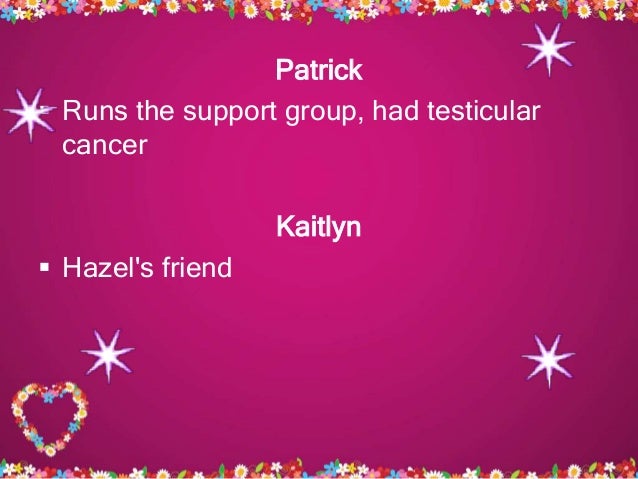Hazel (Shailene Woodley) and Gus (Ansel Elgort) share a sarcastic wit, a disdain for the ordinary, and a love that sweeps them on an unforgettable journey.
- The Fault in Our Stars doesn't want to romanticize cancer, but it does have a tendency to fall in love with romance. When Gus asks Hazel what her story is and she begins to launch into an.
- State College, PA Movie Guide: The Fault in Our Stars, Rated: PG-13, Genre:. Hazel and Gus are two teenagers who share an acerbic wit, a disdain for the conventional, and a love.
 The New Covenant
The New Covenant7For if that first covenant had been without fault, no place would have been sought for a second. 89It will not be like the covenant I made with their fathers when I took them by the hand to lead them out of the land of Egypt, because they did not abide by My covenant, and I disregarded them, declares the Lord.…
I am making this covenant and this oath not only with you,
Jeremiah 31:31
Behold, the days are coming, declares the LORD, when I will make a new covenant with the house of Israel and with the house of Judah.
Luke 22:20
In the same way, after supper He took the cup, saying, 'This cup is the new covenant in My blood, which is poured out for you.
2 Corinthians 3:6
And He has qualified us as ministers of a new covenant, not of the letter but of the Spirit; for the letter kills, but the Spirit gives life.
Hebrews 7:22
Because of this oath, Jesus has become the guarantee of a better covenant.
Hebrews 8:6
Now, however, Jesus has received a much more excellent ministry, just as the covenant He mediates is better and is founded on better promises.
Hebrews 8:13
By speaking of a new covenant, He has made the first one obsolete; and what is obsolete and aging will soon disappear.
Hebrews 9:15
Therefore Christ is the mediator of a new covenant, so that those who are called may receive the promised eternal inheritance, now that He has died to redeem them from the transgressions committed under the first covenant.
Hebrews 12:24
to Jesus the mediator of a new covenant, and to the sprinkled blood that speaks a better word than the blood of Abel.
For finding fault with them, he said, Behold, the days come, said the Lord, when I will make a new covenant with the house of Israel and with the house of Judah:
he saith.
Jeremiah 31:31-34
Behold, the days come, saith the LORD, that I will make a new covenant with the house of Israel, and with the house of Judah: …
the days.
Hebrews 10:16,17
This is the covenant that I will make with them after those days, saith the Lord, I will put my laws into their hearts, and in their minds will I write them; …
Jeremiah 23:5,7
Behold, the days come, saith the LORD, that I will raise unto David a righteous Branch, and a King shall reign and prosper, and shall execute judgment and justice in the earth…
Jeremiah 30:3
For, lo, the days come, saith the LORD, that I will bring again the captivity of my people Israel and Judah, saith the LORD: and I will cause them to return to the land that I gave to their fathers, and they shall possess it.
a new.
Hebrews 9:15
And for this cause he is the mediator of the new testament, that by means of death, for the redemption of the transgressions that were under the first testament, they which are called might receive the promise of eternal inheritance.
Hebrews 12:24
And to Jesus the mediator of the new covenant, and to the blood of sprinkling, that speaketh better things than that of Abel.
Matthew 26:28
For this is my blood of the new testament, which is shed for many for the remission of sins.
covenant.
Isaiah 55:3
Incline your ear, and come unto me: hear, and your soul shall live; and I will make an everlasting covenant with you, even the sure mercies of David.
Jeremiah 32:40
And I will make an everlasting covenant with them, that I will not turn away from them, to do them good; but I will put my fear in their hearts, that they shall not depart from me.
Jeremiah 33:24-26
Considerest thou not what this people have spoken, saying, The two families which the LORD hath chosen, he hath even cast them off? thus they have despised my people, that they should be no more a nation before them…
The Church is sometimes called the universal sacrament of salvation. That use of the word sacrament is broad, not strict. It is true in as much as the Church is the divinely instituted means of giving grace to all. But the Church is not a visible rite - it rather confers these visible rites which we call the seven Sacraments.

From the fact that the Church is God's means of giving grace, is it is clear that there is no salvation outside the Catholic Church. This truth has even been defined by the Church more than once, e.g., in the Council of Florence in 1442. However we must take care to understand this teaching the way the Church understands it. We just saw that the Church claims the exclusive authority to interpret both Scripture and Tradition. So one like Leonard Feeney who interprets the teaching on the necessity of the Church his own way is not acting like a Catholic theologian at all. The Holy Office, on August 8, 1949, declared that L. Feeney was guilty of this error. Because of his error, he rejected several teachings of the Magisterium, saying they clashed with this definition - but they clash only with his false interpretation, given in private judgment.
Pius IX (Quanto conficiamur moerore, August 10, 1863) taught: 'God... in His supreme goodness and clemency, by no means allows anyone to be punished with eternal punishments who does not have the guilt of voluntary fault.' Vatican II (Lumen gentium # 16) taught the same: 'They who without their own fault do not know of the Gospel of Christ and His Church, but yet seek God with sincere heart, and try, under the influence of grace, to carry out His will in practice, known to them through the dictate of conscience, can attain eternal salvation.' Pius XII had said (Mystici Corporis Christi) that one can 'be related to the Church by a certain desire and wish of which he is not aware', i.e., by the desire to do what God wills in general.
Precisely how does this work out? We saw on our very first page that St. Paul insists (Romans 3:29) that God makes provision in some way for all. We saw that one of the earliest Fathers, St. Justin Martyr (Apology 1:46) said that some, like Socrates could even be Christians because they followed the divine Word. Now St. Justin also said that the Divine Word is in the hearts of all. Then we notice in St. Paul's Romans 2:14-16 that 'The gentiles who do not have the law [revealed religion] do by nature the things of the law; they show the work of the law written on their hearts.' And according to their response, they will or will not be saved.
Clearly, it is this Divine Word, or the Spirit of Christ, the Divine Word, that writes the law on their hearts, i.e., makes known to them what they should do. If they follow that, although they do not know that that is what they are following, yet objectively, they do follow the Logos, the divine Word. And so St. Justin was right in calling them Christians. We can add that St. Paul in Romans 8:9 makes clear that if one has and follows the Spirit of Christ, he 'belongs to Christ.' But, to belong to Christ is the same as being a member of Christ, and that is the same as being a member of the Church. Not indeed by formal adherence, but yet substantially, enough to satisfy the requirement of substantial membership. Indeed, Vatican II even wrote (LG # 49): 'All who belong to Christ, having His Spirit, coalesce into one Church.'
So, St. Paul was right: God does take care of them; St. Justin was right too: they can be Christians without knowing it. Otherwise, God would be sending millions upon millions to hell without giving them any chance at all, if they lived far from places where the Church was known, e.g., in the western hemisphere before 1492.
That fact that salvation is possible in this way does not mean that there should be no missions or attempts to bring back the Protestants. Richer and more secure means of salvation are to be had with formal explicit adherence to the Catholic Church. Therefore we need to make every effort. In regard to Ecumenism, it is good to keep in mind a rule from Vatican II, in its Decree on Ecumenism (# 11): 'It is altogether necessary that the complete doctrine be clearly presented. Nothing is so foreign to true Ecumenism as that false peace-making in which the purity of Catholic doctrine suffers loss, and its true and certain sense is obscured.'
Basic Catholic CatechismPART FIVE: The Apostles' Creed IX - XII
The Fault In Our Stars College St. Paul Newman
The Fault In Our Stars College St. Paul Marikina
Ninth Article: 'The Holy Catholic Church; the Communion of Saints'By William G. Most. (c) Copyright 1990 by William G. Most.
